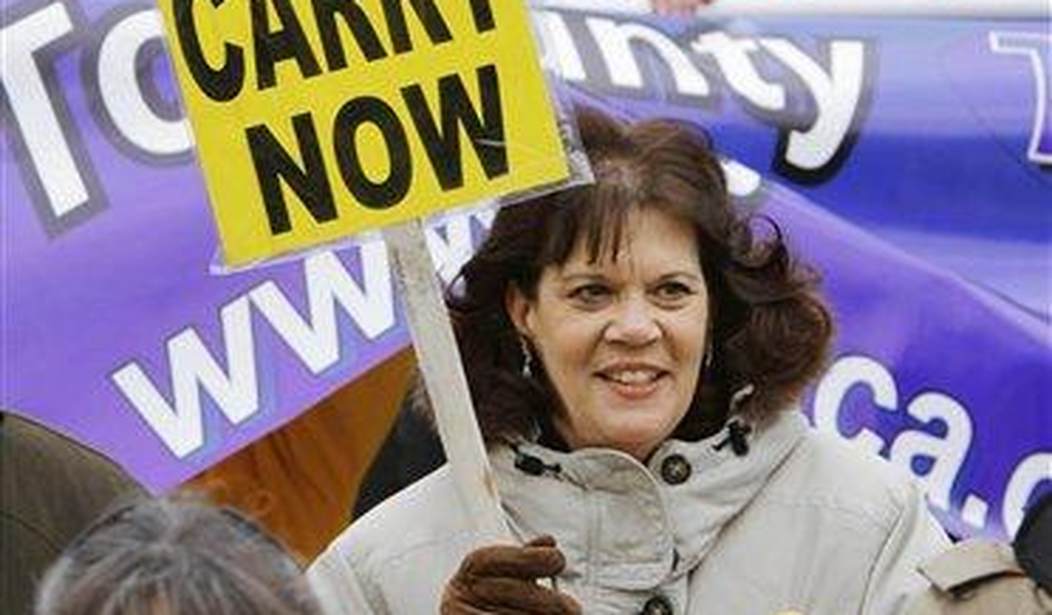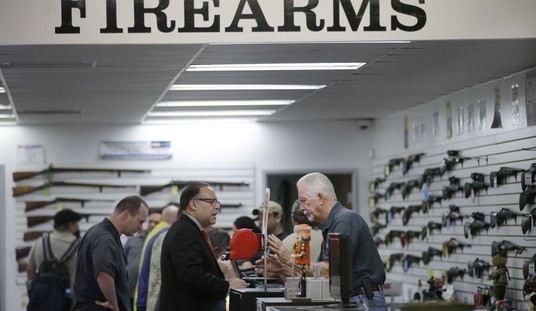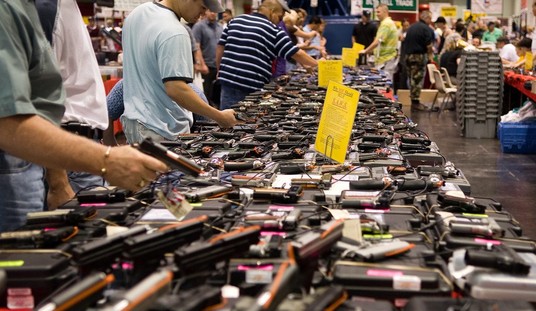When Peter Montaquila was arrested on a misdemeanor charge of simple assault in October 2020, Rhode Island’s Attorney General swiftly moved to revoke his concealed carry license. Those charges were dropped almost as quickly, and when Montaquila tried to renew his carry license the following month he answered the question about whether or not he’d ever been arrested and charged for any offense by checking both the “yes” and “no” boxes. In an addendum, Montaquila explained the circumstances of his arrest:
“[A] gentleman came into my business, which is a gas station and auto detailing facility[,] and became immediately combative and aggressive toward my staff because they would not perform certain work for free. He was clearly under the influence of drugs at the time. He began to throw items off the desk and act very threatening in my store.
“I came out of my office at my employees’ request to mediate the situation. I told the gentleman he would have to leave the premises, and at that time he got very close to my face and shoved me away. At that point, I put my arms around his shoulders and walked him out the door. At no point did I strike, hit, or assault this person. “The man then called the Providence Police, falsely reported that I assaulted him without reason, and I was arrested.”
Montaquila told the AG’s office that the charges had already been dismissed and the records were set to be sealed in early January. He authorized the AG’s office to look into the matter, and Neronha’s office got ahold of the original incident report, which included a detail that Montaquila had left out of his own narrative; the man in questioned claimed that Montaquila had pulled a gun out of his waistband and pointed it at him. The police report indicates that Montaquila told them that he’d pulled his gun because he was concerned that the man was going to retrieve a weapon from his vehicle, but also declared that whether or not the armed citizen actually pointed the gun at the man was “still under investigation.”
On December 7th, 2021 the charges against Montaquila were officially dropped, and on January 6th, 2022 his case was sealed. In late January the AG’s office contacted Providence Police Chief Hugh Clements to ask if there was any reason why Montaquila’s application should be denied, and Clements said he didn’t know of any reason to do so. But on March 4th of last year Neronha’s office sent Montaquila an official notice that his carry license would not be renewed:
“It has been decided by this Office, in its broad discretion to issue a permit to carry a pistol or revolver, to deny your application [d]ue to the last incident report CCR# 2020- 89706 and arrest. In the police report you stated that you pulled you[r] firearm from your back area and brandished it. Your letter explaining the incident does not include the brandishing of your firearm.”
Let’s leave aside for a moment the fact that the Supreme Court has already said broadly discretionary policies in issuing concealed carry licenses are unconstitutional, if for no other reason than the that issue wasn’t raised by Montaquila in his request for the Rhode Island Supreme Court to weigh in on Neronha’s decision. Instead he asked the state’s high court to decide if Neronha had the discretion to use a sealed court filing to decide he was unsuitable to carry a firearm, and the court has now concluded that “that there is no legally competent evidence to support the Attorney General’s decision.” From the decision:
The Attorney General argues that it did not rely on the sealed incident report, and states that in any case, the record reflects that Mr. Montaquila acknowledged the circumstances surrounding his arrest, as well as the propriety of the revocation of his prior license immediately following his arrest. The Attorney General further argues that it had broad discretion to consider these facts and how they bear upon whether Mr. Montaquila demonstrated that he had not, and would not, use his firearm for any unlawful or improper purpose; or whether Mr. Montaquila engaged in unlawful, dangerous, or violent conduct that justified denying his application.
We are unpersuaded by the arguments of the Attorney General regarding the denial letter and the inferences drawn from the evidence in the record. First, the denial letter, dated more than sixty days after the dismissal of the assault charge, clearly relies on the incident report. Specifically, it notes that the incident report included facts that Mr. Montaquila did not divulge in his license application and bases the denial on Mr. Montaquila’s failure to state that he brandished the firearm. However, the omission of the word “brandished” in describing the incident is not legally competent evidence to support the denial.
Additionally, our examination of the record reveals no evidence to support the denial of Mr. Montaquila’s license application. Nothing contained in the record demonstrates any investigation of Mr. Montaquila’s fitness to carry beyond contacting Chief Clements on December 26, 2020. Having received the District Court order that reflects dismissal of the assault charge pursuant to Rule 48(a), as well as the January 25, 2021 notification from Chief Clements that he was not aware of any basis for denying the application, nothing before the Attorney General suggested that Mr. Montaquila acted in anything other than self-defense during the incident. Without any other evidence or rationale justifying the denial, Mr. Montaquila’s omission is, at best, mere scintilla.
This is very good news, and not just for Montaquila. A majority of the court has demonstrated that the “broad discretion” Neronha claims to have in approving or denying carry licenses is not unlimited, and Montaquila’s case sets an important precedent going forward.
It also demonstrates just how abusive these discretionary policies can be. Neronha wanted to deny someone their right to carry a firearm for self-defense simply because they didn’t tell his office about having to draw their gun to protect themselves. How many other responsible gun owners have been denied a license because Neronha decided they weren’t fit to do so?
Whatever the number is, I’m guessing it’s not “zero.” But with this state Supreme Court decision, those subjected to Neronha’s power trips now have more legal weight behind their efforts to get their right to carry back, and I hope that further challenges will cause the court to weigh in directly on that “broad discretion” the AG claims to have.









